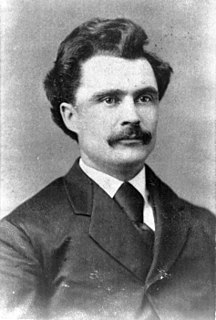A Quote by Alexander Pope
In this commonplace world every one is said to be romantic who either admires a fine thing or does one.
Related Quotes
I can’t have it either. It affects the babies in utero.” “Nonsense,” he said, tossing his long auburn hair over one shoulder. Life would be easier if he wasn’t so damned good-looking. “Why, my mother drank wine every day, and I turned out just fine.” “I think you’re proving my point for me,” I said dryly
I think you have to ask yourself, what is the point of the script? What is the script selling? Because all scripts are political, every story is political. It either challenges or reinforces some schism or stereotype. So what is the project going to say at the end of the day? What does it tell you about the world, or what does it challenge in terms of your world?
Wealth and speed are what the world admires, what each pursues. Railways, express mails, steamships and every possible facility for communications are the achievement in which the civilized world view and revels, only to languish in mediocrity by that very fact. Indeed, the effect of this diffusion is to spread the culture of the mediocre.
The world taught women nothing skillful and then said her work was valueless. It permitted her no opinions and said she did not know how to think. It forbade her to speak in public and said the sex had no orators. It denied her the schools, and said the sex had no genius. It robbed her of every vestige of responsibility, and then called her weak. It taught her that every pleasure must come as a favor from men and when, to gain it, she decked herself in paint and fine feathers, as she had been taught to do, it called her vain.
I'm a romantic, but I'm not a romantic in the traditional sense. I like to romanticize what happens to me. Whatever happens to me - you could quantify it as good or bad - I romanticize it. I think along the lines of 'When that thing happened, it made me who I am.' That kind of thing. It's a different way of being romantic.






































